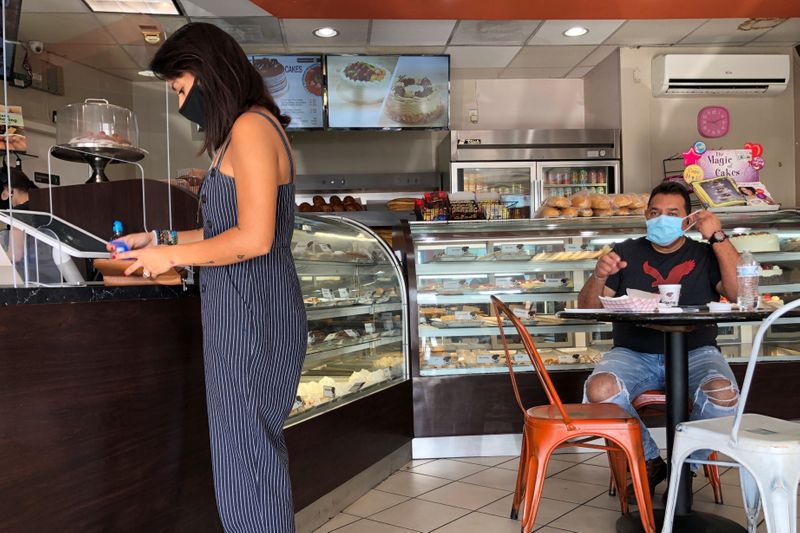By Ann Saphir
(Reuters) - The U.S. labor market and broader economy made some gains this week, which history shows should be good news for President Donald Trump's re-election campaign.
But the gains may be overshadowed by the tens of millions of Americans still out of work because of coronavirus-related shutdowns and growing concerns that there is no new government relief package in sight.
Job openings, a measure of labor demand, in July soared to 6.6 million, nearly back to their pre-crisis level, a Labor Department report showed this week.
For a graphic on Big rebound in job openings:
https://graphics.reuters.com/USA-ELECTION/ECONOMY/xegvbodwxpq/chart.png
Inflation firmed last month, vanquishing fears of growth-stunting deflation. Higher frequency data tracking people's visits to stores and restaurants also pointed to an economic upswing.
However, the economy is nowhere near to rounding the corner to recovery. At least 29.6 million people were still receiving unemployment benefits as of Aug. 22, a report on Thursday showed, and the number of new applicants for jobless benefits was stuck at a high level, at 884,000.
Deadlock in Washington over a new fiscal relief bill could mean this is as good as things get for the economy for some time.
On Thursday, the Senate failed to pass a Republican bill that would have provided around $300 billion in new coronavirus relief. Democrats are pushing for a $3 trillion bill.
"Part of the healthy recovery owes to generous fiscal stimulus policies which have started to fade," Bank of America (NYSE:BAC) economists said in a note on Friday. "It has become unlikely that another round of fiscal stimulus will be passed before the election."
An extra $600 a week for the unemployed, provided under the $2.3 trillion government aid package passed in March, expired in July, and most of the hundreds of billions of dollars to cover payrolls at small businesses also provided under the aid package has now been spent.
That could weigh on voters if the labor market fails to gain more steam, causing "some problems for the incumbent," said Michael Arone, chief investment strategist at State Street (NYSE:STT) Global Advisors.
A new $300 weekly benefit for the unemployed, authorized by Trump, could provide some cushion, though the funding only covers six weeks of payouts.
New U.S. cases of COVID-19 have declined since July, but the virus is still circulating at high enough rates that many businesses are only allowed to operate at reduced capacity, and some not at all. That limits potential economic growth for the nation as a whole.

"The better the economy does, and the more hopeful people are that there’s going to be a rebound, it probably works for Trump," said Steven Englander, a managing director at Standard Chartered (LON:STAN) Bank. But with government aid waning as Nov. 3 approaches, "that could be pretty bad timing for the president."